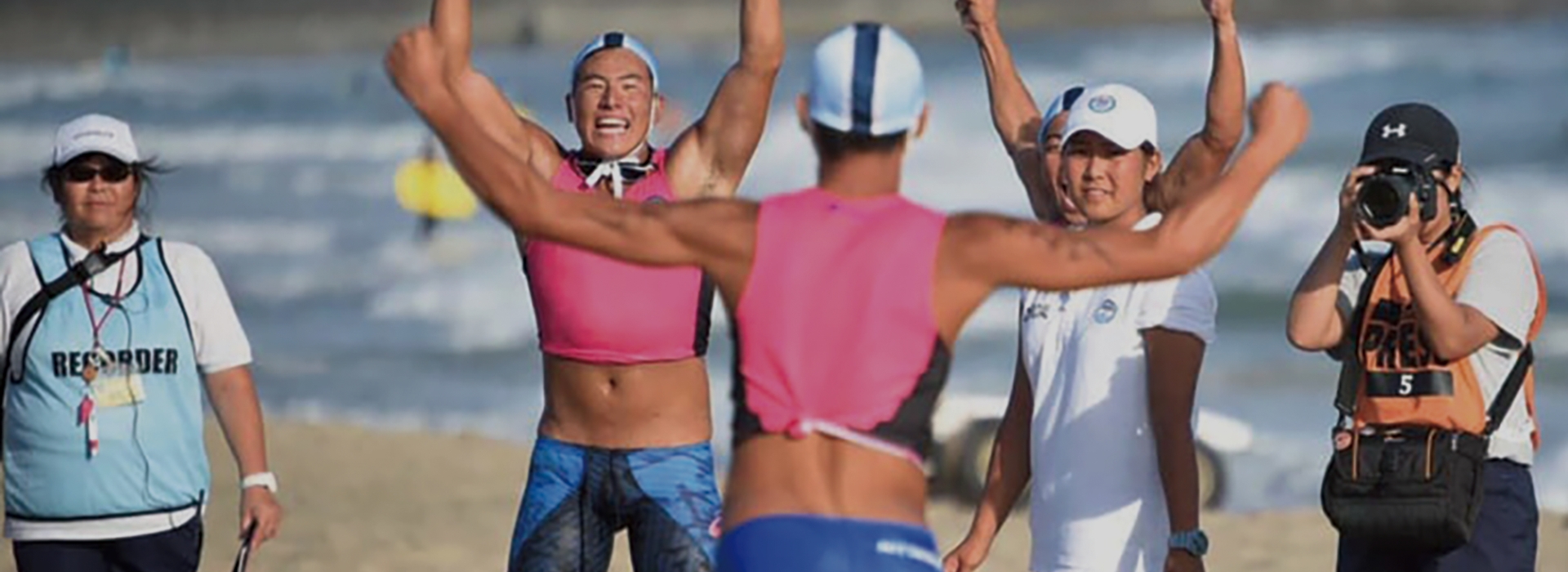
Department of Physical Education
Learn essential skills for aiding the sound development of youths and improving sports performance capability.
The Department of Physical Education offers an academic program that is unique to NSSU, with sports education and competitive sports being its two main fields of study. It not only allows the students to gain knowledge on sports information, medicine,
and science but also acquire knowledge and skills related to condition management and sports injury prevention. The program is also designed to bestow the students with instruction and performance capabilities that are optimal for each individual’s technical
level, along with such leadership skill that allows them to closely and effectively communicate and cooperate with various schools, sports organizations, facilities, etc.
Curriculum duration:
|
Fouryears |
| Academic degree: | Bachelor (Physical Education) |
| Class size: |
750 students
|
| Graduation requirement: |
124 credits at least
|
Career paths and qualifications
Typical career paths
- Junior and senior high school teachers (health and physical education)
- Instructors at specialized training colleges
- Physical education instructors for young children
- Professional athletes
- Athletes on corporate teams
- Sports instructors
- Athletic trainers
- Medical institution staff
- Public employees of various types
- Company employees, etc.
Licenses and qualifications that may be obtained
- Junior high school class-1 teacher license (health and physical education)
- Senior high school class-1 teacher license (health and physical education)
- Special support school class-1 teacher license (for intellectually disabled, orthopedically impaired, and sick persons)
- Athletic trainers (eligibility for examination) *Athletic Sports division only.
- Swimming coach 3 (eligibility for examination)
- Handball coach 1 (eligibility for examination)
- General Incorporated Association of Japanese Physical Education and Sport University (JPSU) sports trainer certificate (eligibility for examination) *Athletic Sports division only.
- Japan Association of Training Instructors-certified training instructor (eligibility for examination)
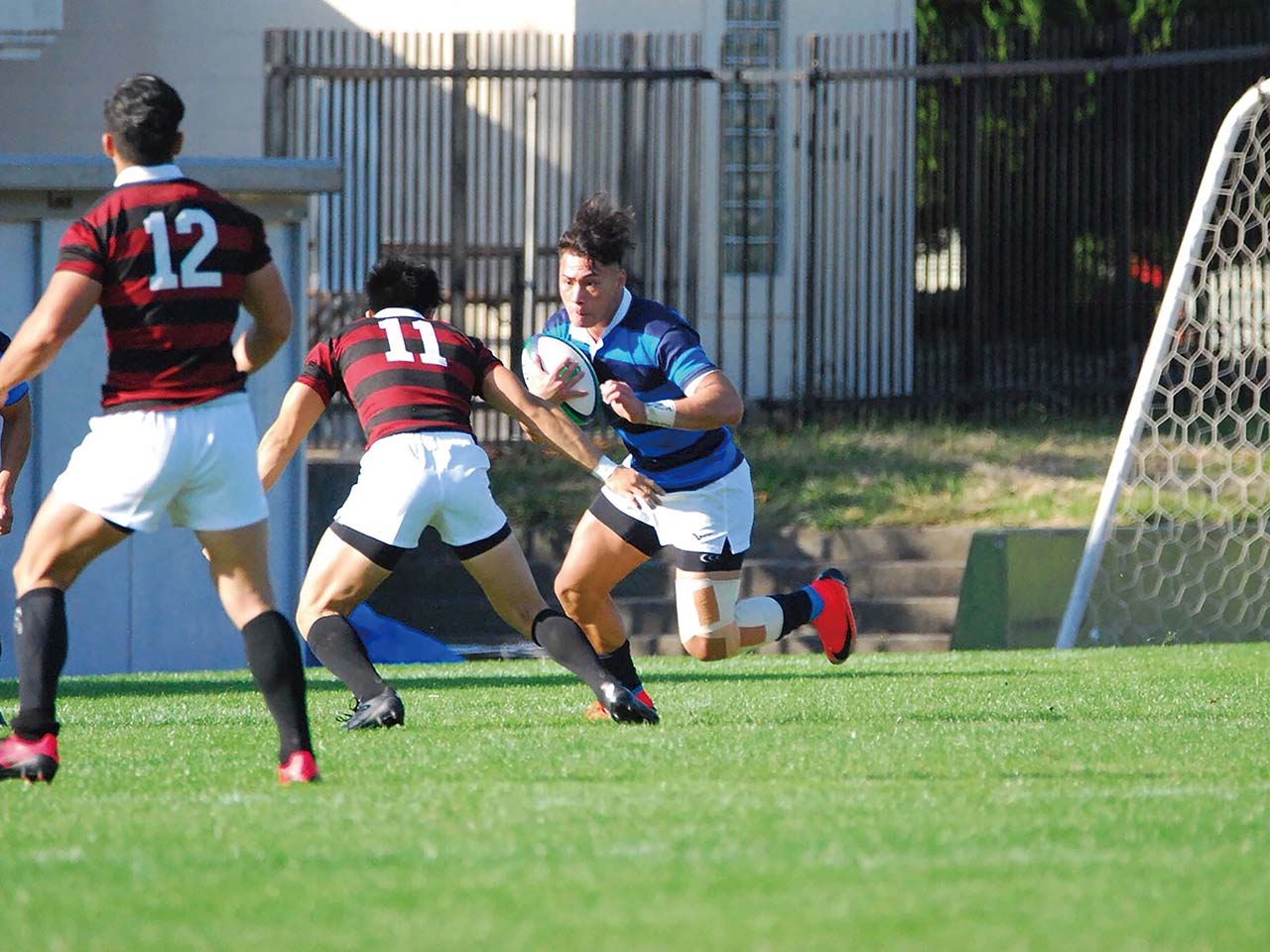
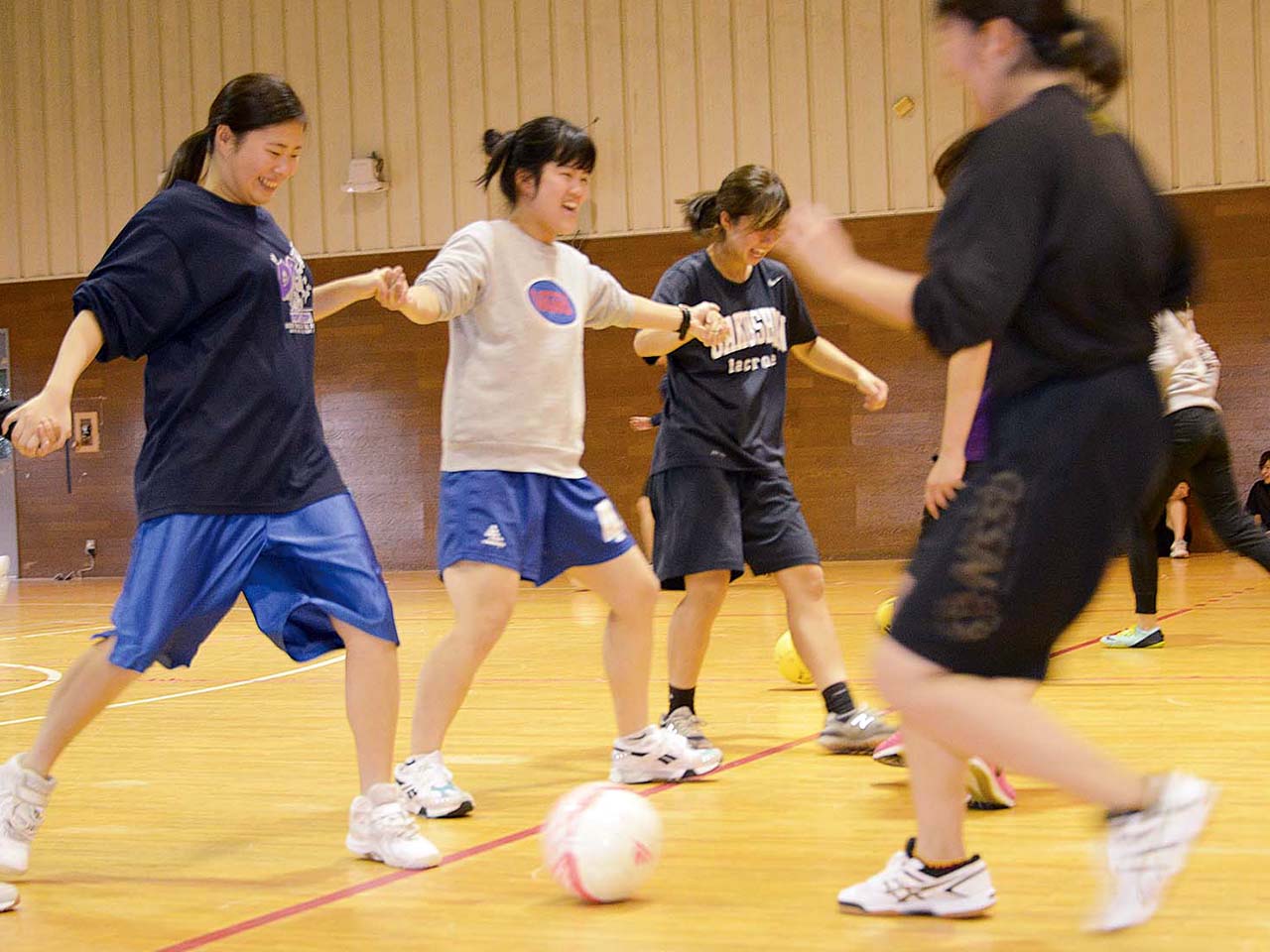
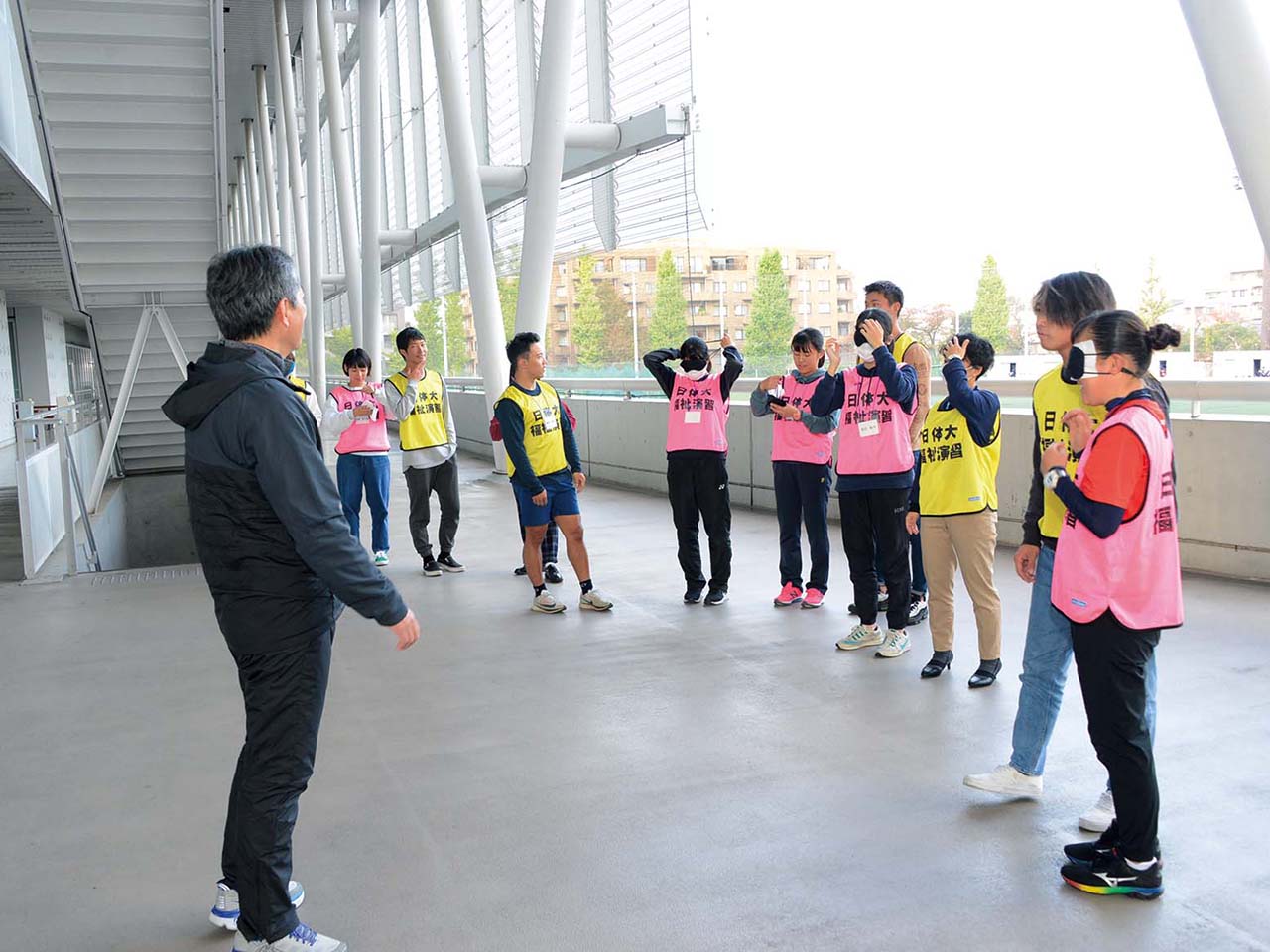
Key departmental features
Training modules and practicums common across the Faculty
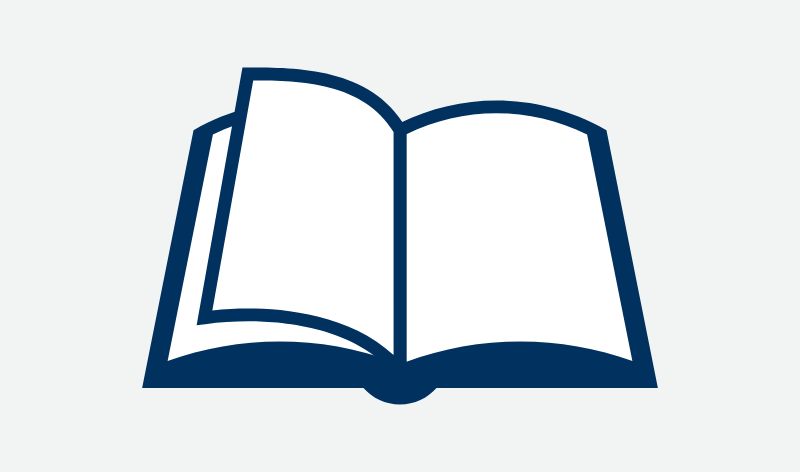 This part of the curriculumcoversfundamental courses such as training theories, coaching theories, sports biomechanics, measurement and evaluation theories, and sports psychology as well as various practicum and practical courses, from which
the students learn the specialized knowledge and skills that are essential for becoming athletes and instructors. It also develops advanced practical capabilities and expertise that are necessary for school instructors to promote youths’ healthy development.
This part of the curriculumcoversfundamental courses such as training theories, coaching theories, sports biomechanics, measurement and evaluation theories, and sports psychology as well as various practicum and practical courses, from which
the students learn the specialized knowledge and skills that are essential for becoming athletes and instructors. It also develops advanced practical capabilities and expertise that are necessary for school instructors to promote youths’ healthy development.
Main training modules and practicums at the Department of Physical Education
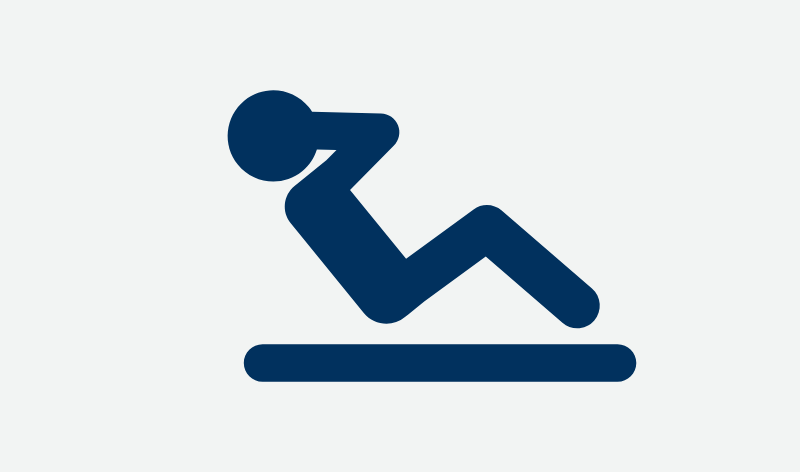 In this part of the curriculum, the students acquire high athletic performance capability while exerting efforts daily to further enhance their technical skills. In addition, the students learn specialized and science-based training and coaching methods
through courses on sports training theories that are broken up into the mental, technical, and physical components, and courses on athletic training theories that are structured into basic, applied, and general segments.
In this part of the curriculum, the students acquire high athletic performance capability while exerting efforts daily to further enhance their technical skills. In addition, the students learn specialized and science-based training and coaching methods
through courses on sports training theories that are broken up into the mental, technical, and physical components, and courses on athletic training theories that are structured into basic, applied, and general segments.
Main training modules and practicums offered at the Department of Health Science
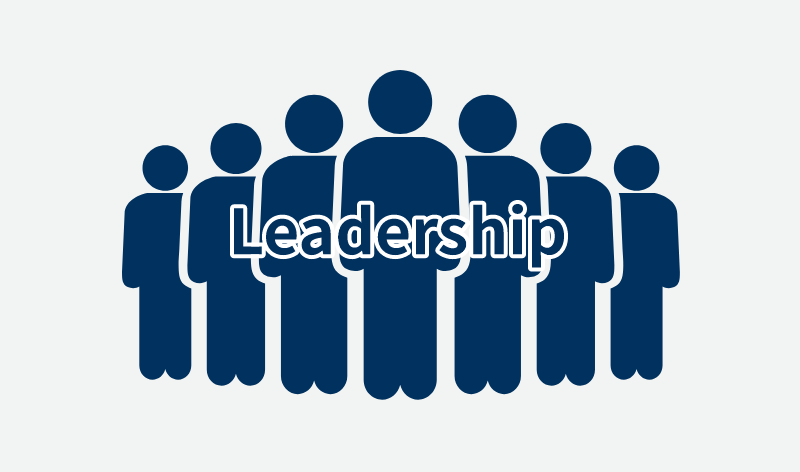 This part of the curriculum is designed to evoke the students’ strong interest in physical education and sports and allow them to engage in research and learning that are essential for becoming physical education and sports instructors. In addition, it
bestows them with proper aptitude, knowledge, and leadership to become effective instructors at schools, sports organizations, etc. through courses on sports administration and management theories, public administration on sports, education methods and
techniques, education systems and management, student guidance theories, etc.
This part of the curriculum is designed to evoke the students’ strong interest in physical education and sports and allow them to engage in research and learning that are essential for becoming physical education and sports instructors. In addition, it
bestows them with proper aptitude, knowledge, and leadership to become effective instructors at schools, sports organizations, etc. through courses on sports administration and management theories, public administration on sports, education methods and
techniques, education systems and management, student guidance theories, etc.
Sample course
Understand how to perform muscular strength training.
Instructor: Takashi Okada
Key features of this practical course- It emphasizes actual training practice and group work in addition to lectures.
- Students are also taught essential knowledge for becoming training instructors.
- Students can draw from their own training experiences.
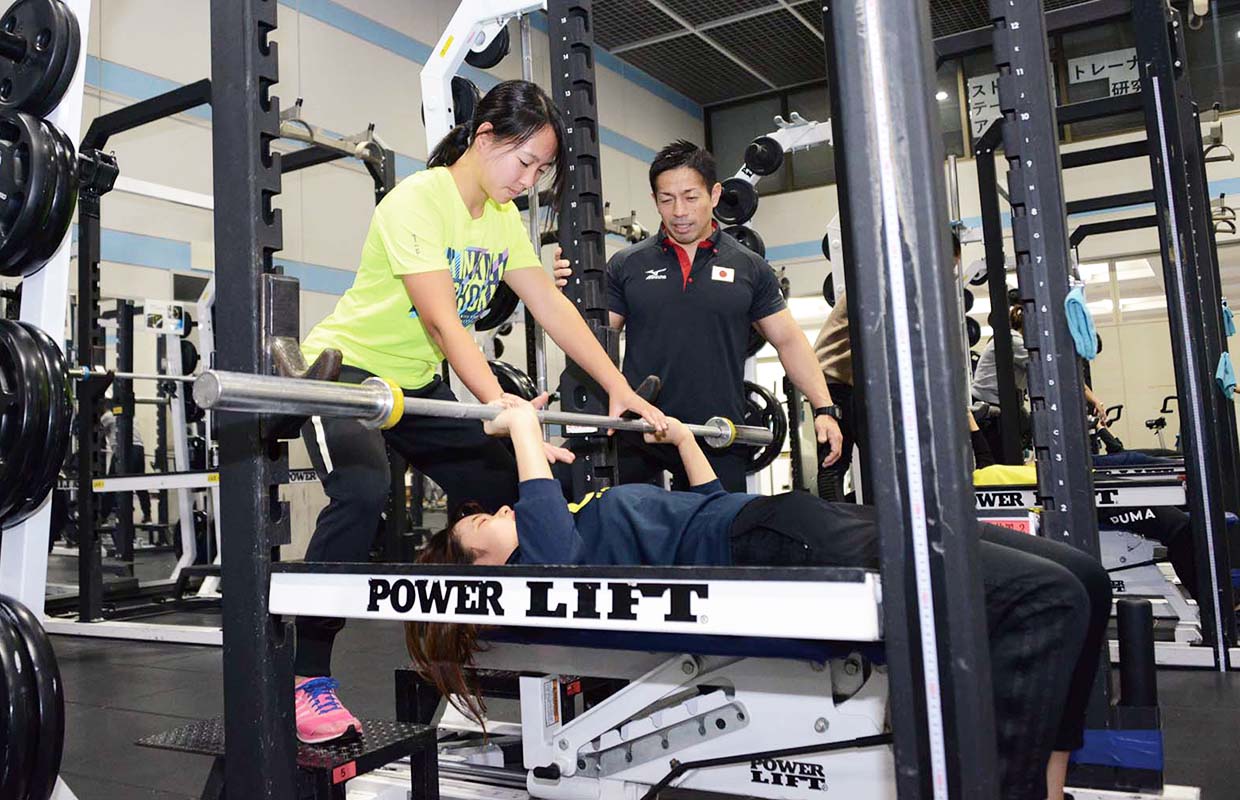
The course is designed to develop students into training instructors by teaching essential knowledge and practical skills in this age of information abundance.
Training has different purposes and functions including athletic performance enhancement, injury prevention, and health improvement. Meanwhile, as the tools available to us have become increasingly diverse in recent years, so have training and its methods. As we live in this age of information inundation, it is crucial to gather accurate information and understand its essential significance. Against such background, the course is offered for the students to learn necessary knowledge and practical skills that are required of competent training instructors, so that they can help the athletes they train perform faster, higher, and stronger. The course emphasizes both theoretical and practical aspects of effective training by involving lectures, practice sessions, group study, etc.It allows the students to take a second look at their muscular strength training regimens for optimization and performance enhancement.
This course, which is specifically focused on muscular strength training, is designed for the students to learn strength and conditioning theories, how to formulate training programs, and improve their trainees’ athletic performance. It provides practical training information and instruction methods targeting the lower limbs, the upper limbs, and the whole body, and expands knowledge on the science of training including training intensity and intervals. In addition, the students engage in group work to learn how to evaluate error techniques, and create training programs together, after which they use the programs in actual training and instructions. As the students taking this course are also athletes themselves that have gone through diverse training, they are encouraged to share their questions and issuesthey personally experiencedwith the class, and take what they learn from the course with them to further improve the quality of their training.
Sport Education Division
Sport Education
Learn essential knowledge and practical skills to become physical education instructors at schools.
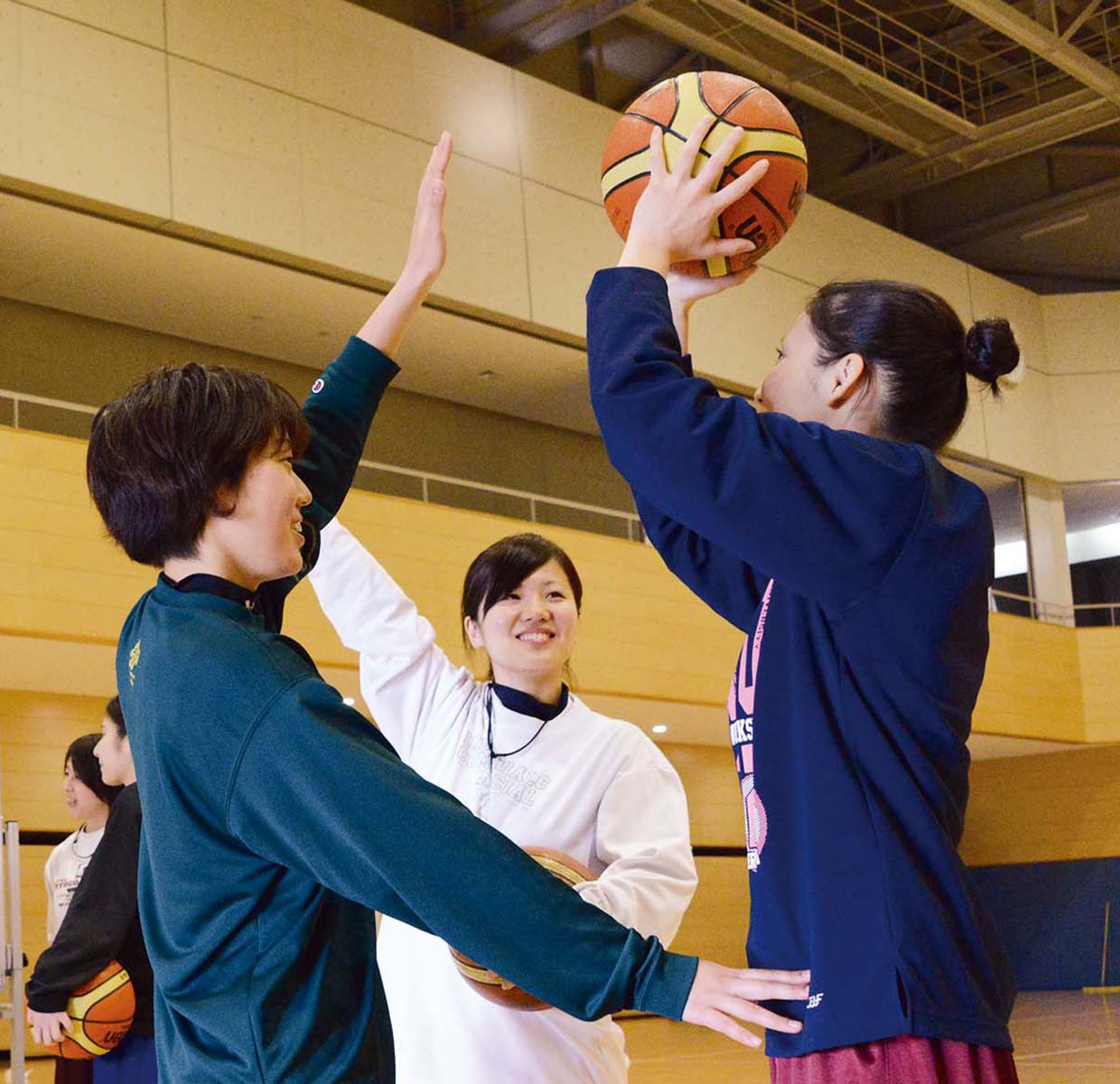
This is a testament to the efficacy of NSSU’s unique curriculum that allows the students to become effective teachers and school employees as well as to the students’ high devotion to performing well in the profession.
In the Sport Education division, the curriculum is designed to cultivate the students’ talents to become the instructors that are capable of catering to the needs of children and society, as they experience the joy and other deeply positive emotions that come with the teaching profession.
Sample courses
Training Theories
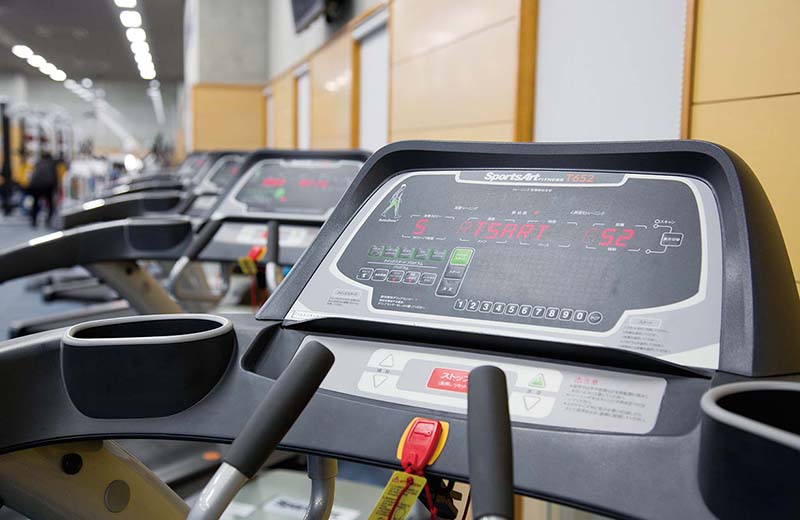 The course allows the students to understand what precisely constitutes physical fitness, and recognize what today’s main approaches are to its improvement. The students then learn the basic knowledge on how to correctly conduct physical fitness training
for athletes to perform well in their specific sporting competitions, and also help with people’s fitness activities to maintain and improve their health, while improving their understanding of science-based training, exercise, and instruction methods
that are suitable for specific purposes.
The course allows the students to understand what precisely constitutes physical fitness, and recognize what today’s main approaches are to its improvement. The students then learn the basic knowledge on how to correctly conduct physical fitness training
for athletes to perform well in their specific sporting competitions, and also help with people’s fitness activities to maintain and improve their health, while improving their understanding of science-based training, exercise, and instruction methods
that are suitable for specific purposes.
Compulsory courses for learning the basic knowledge required of a physical education teacher and for obtaining the teaching license
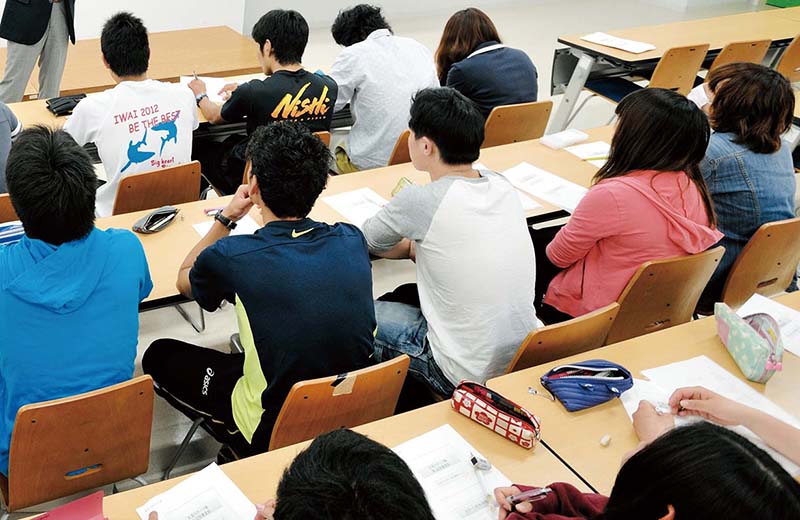 These courses allow the students to achieve a deep understanding on physical education goals and programs in the subject of health and physical education, instruction planning, learning guidance methods, and evaluation methods, and build the foundation
based upon which they can teach classes effectively as health and physical education teachers. As these are the compulsory courses the students must take to obtain their teaching licenses, they include instructions on how to teach classes, including lectures
and project-based learning (instruction plan formulation, etc.) in accordance with the government-specified curriculum guidelines.
These courses allow the students to achieve a deep understanding on physical education goals and programs in the subject of health and physical education, instruction planning, learning guidance methods, and evaluation methods, and build the foundation
based upon which they can teach classes effectively as health and physical education teachers. As these are the compulsory courses the students must take to obtain their teaching licenses, they include instructions on how to teach classes, including lectures
and project-based learning (instruction plan formulation, etc.) in accordance with the government-specified curriculum guidelines.
Practicum for learning track and field instruction methods through actual sporting activities
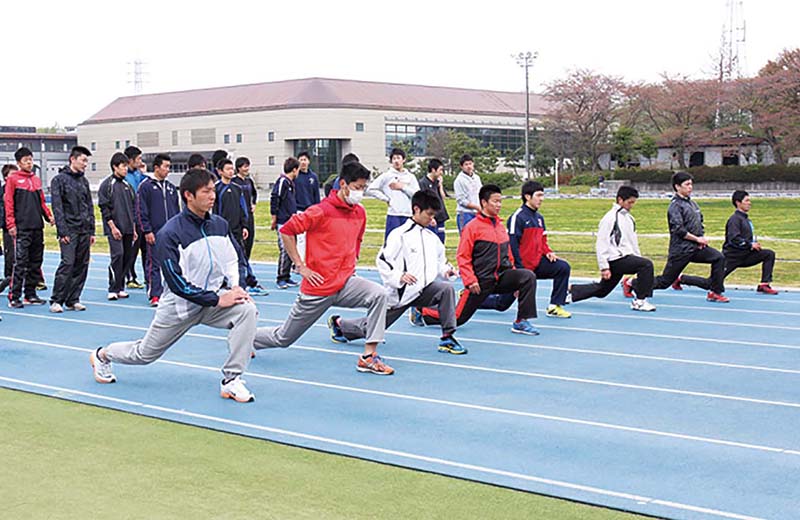 In this course, the students pick a few track and field contest types and formulate instruction plans themselves, and teach classes accordingly. Through this process, the students gain first-hand experience of the challenges that they encounter in teaching
and communication, and learn effective instruction, explanation, and expression methods and skills. The course is mostly a practicum that caters to students aspiring to become health and physical education teachers at junior and senior high schools.
In this course, the students pick a few track and field contest types and formulate instruction plans themselves, and teach classes accordingly. Through this process, the students gain first-hand experience of the challenges that they encounter in teaching
and communication, and learn effective instruction, explanation, and expression methods and skills. The course is mostly a practicum that caters to students aspiring to become health and physical education teachers at junior and senior high schools.
Athletic Sports Division
Athletic Sports
Gain knowledge and competitive performance skill to become top athletes and coaching staff of tomorrow.
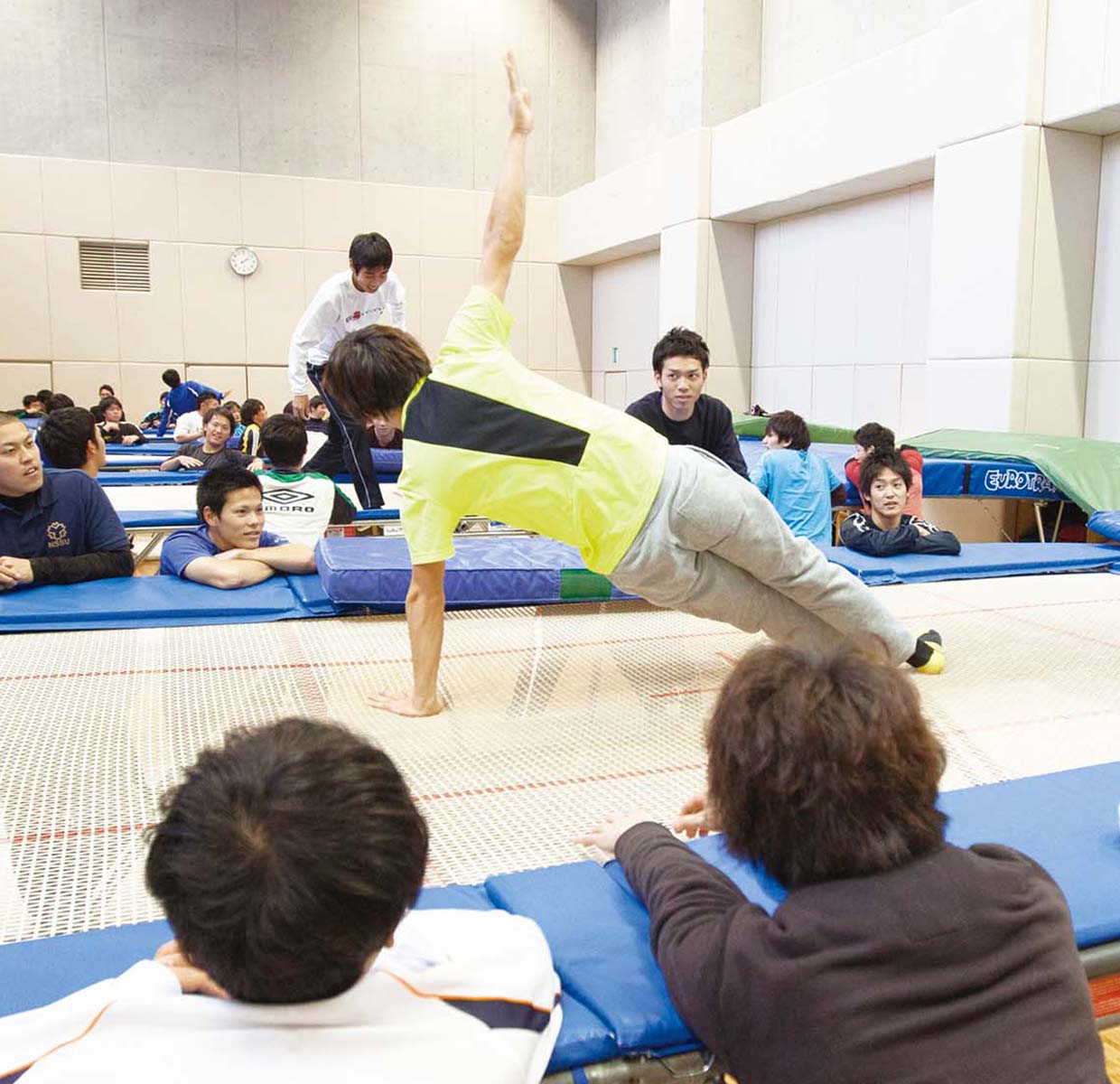
Sample courses
Athletic Training Theories (Basic I) A
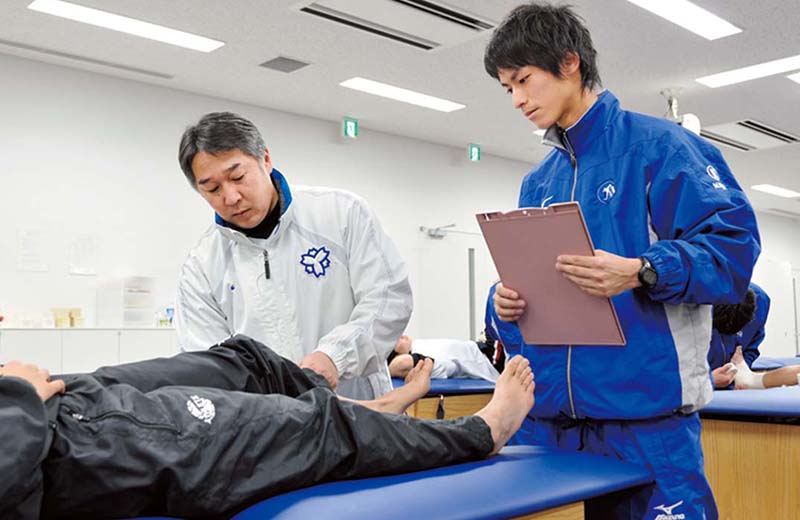 Learn the basic knowledge essential to athletic trainers.
Learn the basic knowledge essential to athletic trainers.
In this course, students learn the roles of athletic trainers, how they communicate and cooperate with sports doctors, coaches, and other medical science staff members, related organizational operation, and ethics applicable to athletic trainers. It is designed to impart knowledge and skills that are necessary for proper emergency treatment of various injuries that occur in sporting activities.
Sports TrainingTheories C (Physical)
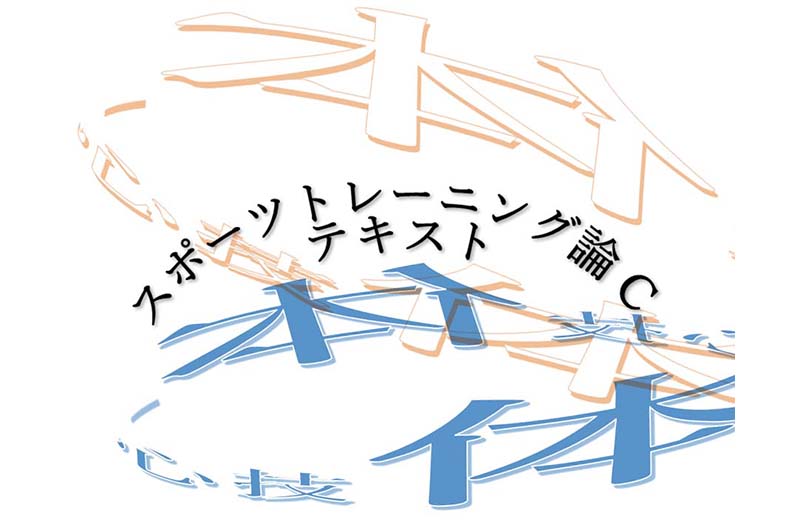 Learn wide-ranging techniques and knowledge that are required of competitive sports instructors.
Learn wide-ranging techniques and knowledge that are required of competitive sports instructors.
This course imparts knowledge on sports training that is essential for those aspiring to become athletes, exercise instructors, and sports coaches, focusing mainly on its physical aspect, with the other two being mental and technical, which must together achieve an optimal balance. The course is designed for the students to learn basic knowledge on exercise, sports, and training, and improve their essential capacity and aptitude for becoming athletic competition coaches and sports instructors, while appreciating the importance of physical activities (from the perspectives of children, elders, and athletes).
Sports Psychology
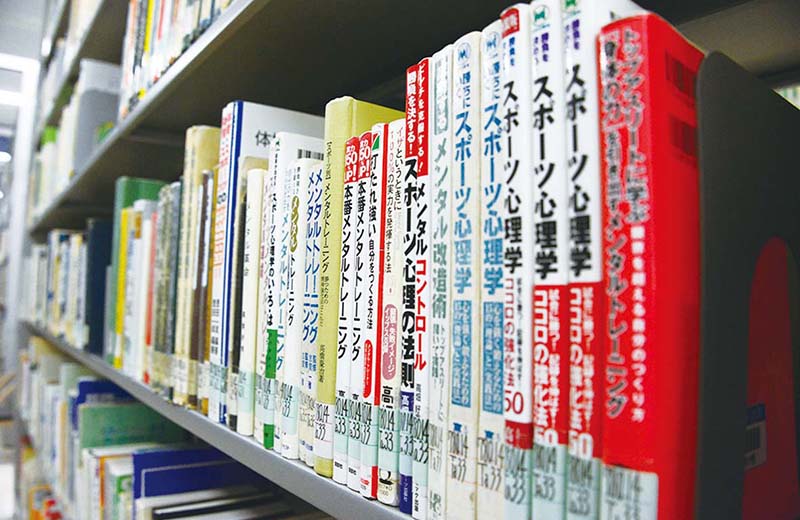 Elucidate the psychological interaction between sports culture and humans.
Elucidate the psychological interaction between sports culture and humans.
This course aims to illuminate the psychological interaction between sports culture—which is a product of humans developed and advanced over the years—and humans that continuously strive to perform better and become healthier. It allows the students an opportunity to discuss various psychologicalissues and topics related toathletic performance improvement and health, and to logically contemplate on their individual experiences.